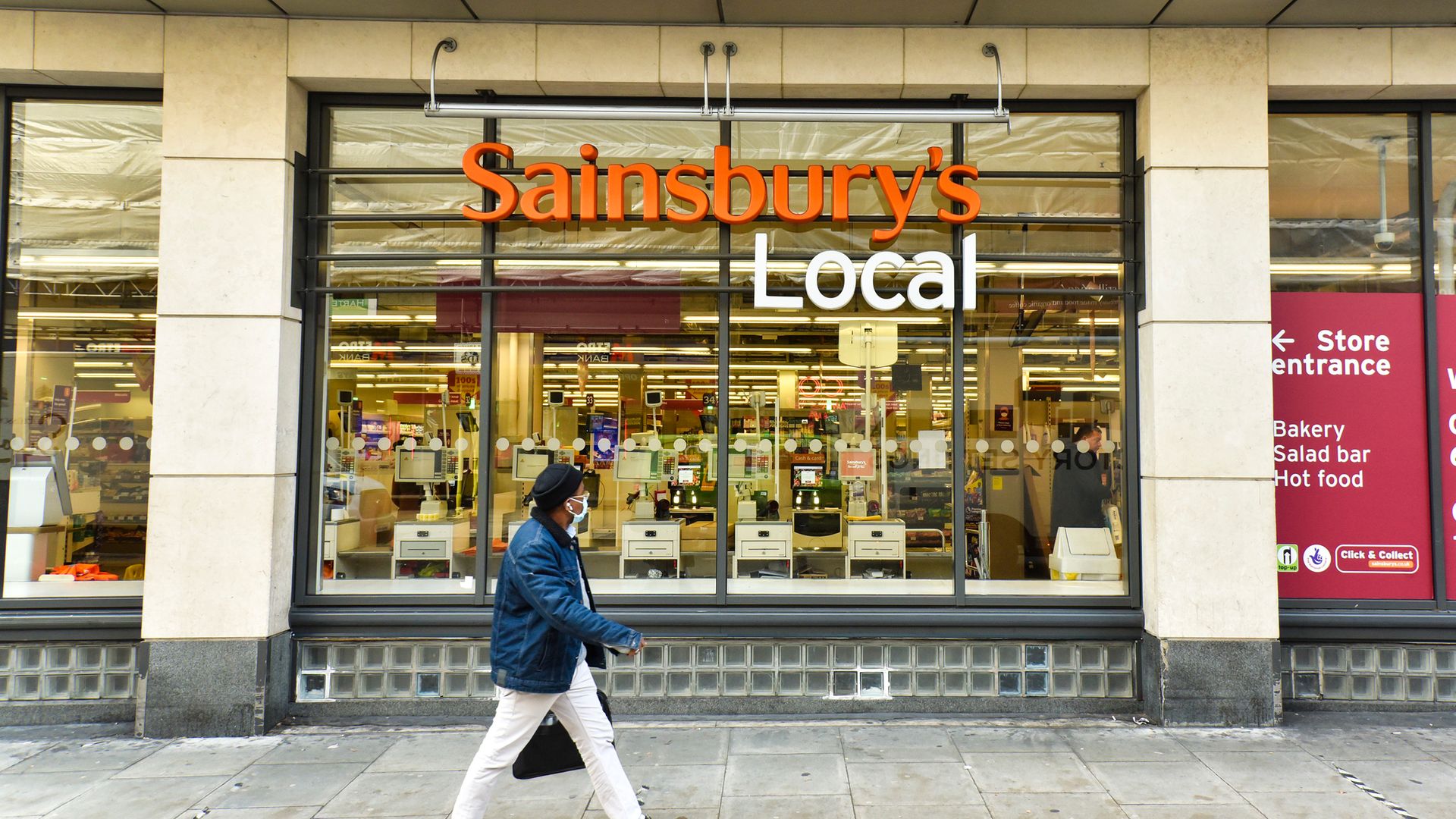
Sainsbury’s devotee WILL SELF on the chain’s travails and what they reveal about a doomed attempt to make everyone in Britain middle class.
Last week Sainsbury’s announced it will be losing 3,500 jobs due to the closure of its in-store meat, fish and deli counters, and of its 420 standalone Argos outlets. The latter will be reincarnated in the form of 150 in-store outlets – but I’m middle class, so that doesn’t much concern me. True, from time to time I’ve flicked through an Argos catalogue (usually to admire the figures of the mature models advertising thermal underwear), but the idea of going into a shop to order something that’s not materially present has always seemed to be highly counterintuitive – and the very opposite of what we must, perforce, call ‘retail theatre’.
And that’s the only theatre most of us have been experiencing in recent months. The in-store counters have been viewed as increasingly non-viable by Sainsbury’s management – but of course, it’s the pesky pandemic that’s finally done for them. Quoted in an article on the BBC website, retail expert Kate Hardcastle made the connection between asking for a half pound of scrag-end, and treading the most exalted boards: “Those counters were really important, they brought what we call retail theatre into the mix and retail theatre’s so important, but only when people are shopping with the senses available to them. So, you can’t smell things with a face mask. People are shopping with military precision, it isn’t about stopping and dwelling now, it’s about efficiently getting on.”
Maybe so, Ms Hardcastle – but for many of us thermal-under-wearers a trip to the supermarket has become not simply theatrical, but epic, as we dodge and weave about our fellow virus-spewing consumerist zombies, marvelling that such material largesse can still be on show in a nation whose economy, á cause de la crise, is on its knees. And yes: Sainsbury’s is the retail theatre I most consistently attend – the manner to which I am born. And if I buy a half dozen eggs at the Co-Op I’m only honouring the family custom as much by its breach as its observance, Horatio. For as long as I can remember orange livery, blue-and-white striped aprons and elegantly resonant phrases such as “Good Food Costs Less at Sainsbury’s” have been the very cultural marrow of my bourgeois bones. True, Sainsbury’s isn’t Waitrose – but most emphatically, neither is it Tesco.
My mother, an immigrant who arrived on these shores in the late 1950s from America, was a fervent admirer; for her Sainsbury’s and the BBC were paired demigods – the glittery Castor and Pollux of British cultural life, set in a firmament of greyest Aertex. You might have thought an American would find British supermarkets a bit dated – but no: for her Sainsbury’s commitment to simplicity of display and quality of produce was a revelation after all the gimmickry employed by the victuallers of her native land. I can remember her rhapsodising – yes, rhapsodising! – as we took the boustrophedon route around the shelves and between the frozen food gondolas. This was our way – and who knows, we might well meet Jack de Manio down it.
Still, our way has never been everyone else’s: Sainsbury’s has always had a much higher market share in the south than the north – and while the BBC has made strenuous efforts to go regional, its grocery retailing arm has never managed to reach very far into the Celtic fringe. The acquisition of Safeway by Morrisons in the early 2000s put paid to that – Sainsbury’s and Tesco had put in bids as well, keen to lay their clean, fresh, every-little-bit-helps hands on the Scots outlets; but referred to the Competition Commission, the mega-retailers’ bids were ruled not in the public interest. It’s a bizarre sort of stalemate that has endured to this day: only last year a merger between Asda and Sainsbury’s was also struck down on the same potentially monopolistic grounds.
This corporate impasse between the Big Four British supermarkets is reminiscent of the war-without-end between Oceania, Eurasia and Eastasia in Orwell’s 1984. A war that’s surely only likely to intensify if the pandemic continues in such fine, discombobulating style. True, I’m part of the problem so far as Sainsbury’s are concerned – even before Covid struck, I was using their fresh produce counters less as well; not that their meat and fish isn’t as wholesome as ever – it’s just that I gave up eating meat and fish a year or so ago. Now all those men and women in their white plastic snoods and blue-and-white-striped cotton aprons are to be let go of – dropped into the ravening maw of an every-hungry, ever-growing recession.
Really, looked at with the benefit of a pair of non-prescription reading glasses bought from a Sainsbury’s in-store pharmacy, the retailer’s problems long antedate the pandemic, and relate more to the delusional Blairite plan to make everyone in Britain middle class – even those on low incomes. The abandoned meat, fish and deli counters will mark the high water mark of this aspiration, just as will the bankrupted universities and jerry-built ‘academies’. Is this the retail theatre Ms Hardcastle had in mind? I hardly think so – she was talking about a sensuous engagement with some silverside, not this all-consuming human tragedy.
Warning: Illegal string offset 'link_id' in /mnt/storage/stage/www/wp-includes/bookmark.php on line 357
Notice: Trying to get property 'link_id' of non-object in /mnt/storage/stage/www/wp-includes/bookmark.php on line 37







